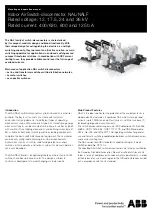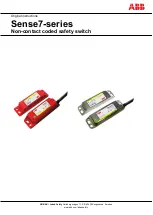
1-5
Code
Message type
Message description
4 Accounting-Request
Direction: client->server.
The client transmits this message to the server to
request the server to start or end the accounting
(whether to start or to end the accounting is determined
by the Acct-Status-Type attribute in the message).
This message carries almost the same attributes as
those carried in the Access-Request message.
5 Accounting-Response
Direction: server->client.
The server transmits this message to the client to notify
the client that it has received the Accounting-Request
message and has correctly recorded the accounting
information.
2) The Identifier field (one byte) is used to match requests and responses. It changes whenever the
content of the Attributes field changes, and whenever a valid response has been received for a
previous request, but remains unchanged for message retransmission.
3) The Length field (two bytes) specifies the total length of the message (including the Code, Identifier,
Length, Authenticator and Attributes fields). The bytes beyond the length are regarded as padding
and are ignored upon reception. If a received message is shorter than what the Length field
indicates, it is discarded.
4) The Authenticator field (16 bytes) is used to authenticate the response from the RADIUS server;
and is used in the password hiding algorithm. There are two kinds of authenticators: Request
Authenticator and Response Authenticator.
5) The Attributes field contains specific authentication/authorization/accounting information to provide
the configuration details of a request or response message. This field contains a list of field triplet
(Type, Length and Value):
z
The Type field (one byte) specifies the type of an attribute. Its value ranges from 1 to 255.
Table 1-2
lists the attributes that are commonly used in RADIUS authentication/authorization.
z
The Length field (one byte) specifies the total length of the attribute in bytes (including the Type,
Length and Value fields).
z
The Value field (up to 253 bytes) contains the information of the attribute. Its format is determined
by the Type and Length fields.
Table 1-2
RADIUS attributes
Type field
value
Attribute type
Type field
value
Attribute type
1 User-Name
23 Framed-IPX-Network
2 User-Password
24 State
3 CHAP-Password
25 Class
4 NAS-IP-Address
26 Vendor-Specific
5 NAS-Port
27 Session-Timeout
6 Service-Type
28 Idle-Timeout
7 Framed-Protocol
29 Termination-Action
8 Framed-IP-Address
30 Called-Station-Id
9 Framed-IP-Netmask
31 Calling-Station-Id















































